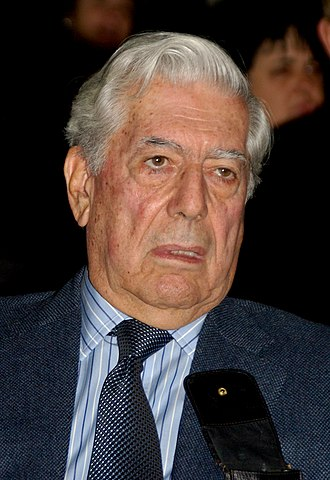LOS JEFES - MARIO VARGAS LLOSA
In what ways could you consider Los jefes by Mario Vargas Llosa to be a celebration of masculine/macho culture? Or the opposite?
Los Jefes by Mario Vargas Llosa is a story about a kid that no name can be identified, has the leadership of starting a strike against final exams schedule and the principal of the primary school, as each of the exams will be taken by surprise and the students could not know which one they had to study for. This kid, the main character, had the capacity of persuading other kids from his classroom and even some other from different grades, so they all could get together and the principal could get the problem he is provoking. In the beginning, they meet pacifically with the principal, but as he opposed and as he also abused on the power he had, they start to get angry and protest against him.
It is a short story in which macho culture can be identified, as through the reading, no female presence can be observed, besides the characters present what we know as masculine behavior such as pride, dirty comments, and heavy personalities. The main character who is the leader of the strike, presents pride along with the story, as he is fighting what he believes in. However, the point of the story is not to glorify this idealistic masculine macho culture but rather to highlight its flaws and consequences. In the short story, the word celebration is used to connotate how machismo conformity produces self-destruction rather than having a balanced life and the bad ending portrays the negative consequences.
arguments:
dirty comments: “Quiere fregarnos, el serrano”, “Sí, maldito sea”, “¡Gallardo, maricón!”, “¡No seas imbécil!”, “Siéntese, Montes, es usted un asno”.
pride: “Ahora no me importa. Me las vas a pagar todas. Es mi oportunidad, ¿ves? Hagamos que formen”
heavy personality: “taconéabamos con fuerza, hasta dolernos los pies”
protest: “que dábamos la espalda a la baranda y a los interminables arenales que comenzaban en la orilla contraria del cauce, una muchedumbre compacta, extendida a lo largo de toda la cuadra, se mantenía serena, aunque a veces, aisladamente, se escuchaban gritos estridentes”.
By Jeanne and Mara.
Jorge Mario Pedro Vargas Llosa (1936) is a Peruvian writer, politician, journalist and essayist. He is one of the Latin American's most significant novelist and essayist. Some critics consider him as one of the most internationally influential Latin American Boom writers. In 2010, he won the Nobel Prize in Literature.

References:
- Vargas, M.
